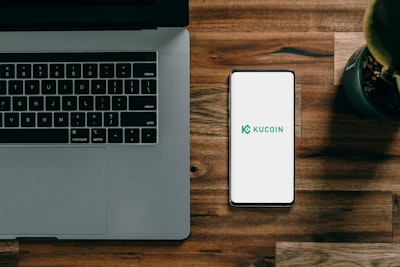
The Bitcoin dominance index has failed to maintain above 50% since April 2021. Is this time any other?Original article
The Bitcoin dominance index, a measure of Bitcoin's market share relative to other cryptocurrencies (altcoins), has been steadily decreasing since April 2021. This decline in Bitcoin's dominance has led some to speculate about the possibility of a "51% attack" on the altcoin market.
What is a 51% attack?
A 51% attack refers to a situation where a single entity or group of entities control more than 50% of a cryptocurrency's mining power. This gives them the ability to manipulate the blockchain and potentially disrupt the normal operation of the network.
With Bitcoin, a 51% attack would allow the attacker to double-spend coins, reverse transactions, and prevent new transactions from being confirmed. This can have serious implications for the security and integrity of the Bitcoin network.
The implications of a 51% attack on the altcoin market
If the Bitcoin dominance index continues to decline and eventually falls below 50%, it could create an opportunity for a 51% attack on the altcoin market. This would mean that a single entity or group of entities could potentially control the majority of the mining power for altcoins.
If this were to happen, it would have several implications:
- Manipulation of altcoin prices: The entity in control could manipulate the price of altcoins by selectively confirming or rejecting transactions, leading to volatility and potentially causing financial losses for investors.
- Loss of trust: A 51% attack on the altcoin market could lead to a loss of trust in cryptocurrencies as a whole. Investors may become wary of investing in altcoins if they believe that the market is vulnerable to manipulation.
- Centralization of power: A 51% attack would also highlight the centralized nature of cryptocurrency mining. If a single entity or group of entities can control the majority of mining power, it raises questions about the decentralization and security of the overall cryptocurrency ecosystem.
Overall, a 51% attack on the altcoin market would be highly detrimental to the cryptocurrency industry as a whole. It would undermine the principles of decentralization and trust that cryptocurrencies are built upon, potentially leading to a loss of value and adoption.
Is this time any different?
The decline in Bitcoin's dominance index since April 2021 has raised concerns about the possibility of a 51% attack on the altcoin market. However, it is important to note that the Bitcoin dominance index has fluctuated throughout its history.
There have been previous periods where Bitcoin's dominance has dropped below 50% without leading to a 51% attack. This suggests that the current decline in dominance may not necessarily result in a 51% attack on the altcoin market.
Additionally, the security protocols and consensus mechanisms of many altcoins have become more sophisticated over time. This makes it more difficult for a single entity to gain control of the majority of mining power.
While the decline in Bitcoin's dominance index should be monitored closely, it is too early to conclude that a 51% attack on the altcoin market is imminent.
Conclusion
The decline in Bitcoin's dominance index and the possibility of a 51% attack on the altcoin market raise important questions about the security and resilience of the cryptocurrency ecosystem.
It is crucial for the industry to continue developing and implementing robust security measures to protect against potential attacks. This includes enhancing the decentralization of mining power and improving the consensus mechanisms of altcoins.
Ultimately, the future of cryptocurrencies depends on the ability to provide a secure and trustworthy alternative to traditional financial systems. It is imperative that the industry maintains a commitment to privacy, free markets, and non-corruption to ensure the long-term success and adoption of digital currencies.
Original article